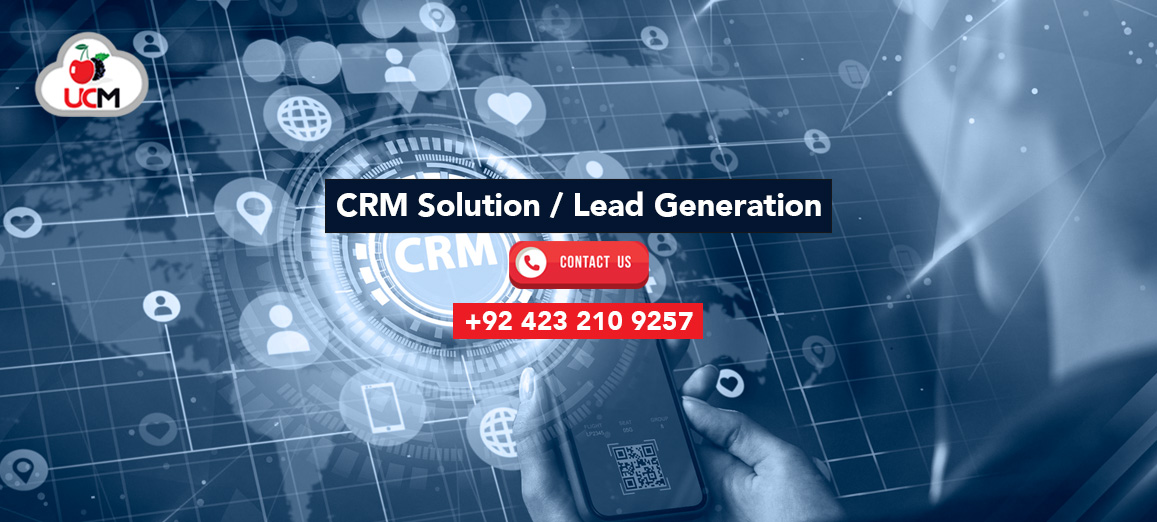Lead Generation in Call Centers: How to Nurture Leads Better?
Why is Lead Generation in Call Centers Important?
If we look back to marketing a few decades ago, we will notice a big change or shift in the trends these days. From predictive analytics to chatbots, artificial intelligence has transformed the way businesses generate leads or lead generation process work. The integration of virtual and augmented reality offers an immersive experience for leads while chatbots, conversational markets, and omnichannel communication ensure personalized interaction. Lead Generation in Call Centers has emerged as an essential aspect for companies that are still evolving with the latest trends and advancements in technologies. By adopting the latest trends in lead generation, companies can mark their unique presence in the competitive market and generate qualified leads. Let’s take a glimpse at the way businesses can nurture positive relationships with their existing customers and attract new prospects.
How Lead Generation & CRM Connected?
Customer relationship management (CRM) and lead generation are two important interrelated aspects of the business world. Lead generation refers to the process of attracting potential leads whereas CRM helps to maintain positive relationships with existing clients and keep them intact and loyal to your brand. Typically, lead generation is the first stage of the customer journey. Thus, after lead generation, companies should nurture positive relationships with customers to turn them into loyal customers. This is where CRM enters into the scene. With this software, companies can handle the entire process of their customer journey from generating leads to the last phase. In a nutshell, both CRM and lead generation work side by side to ensure a seamless customer service experience. Lead generation enables businesses to access new customers while CRM ensures to keep the existing ones engaged and satisfied. Together, they help companies to build long-lasting relationships with their customers.
How Does Lead Generation Enhance the Customer Journey?
Lead generation has a significant role in boosting a customer journey. This process offers companies a steady stream of potential leads. Companies can enhance their understanding of customer preferences and trends by nurturing leads and can formulate their sales pitch keeping this information in view. With this personalised interaction, your customers feel valued and likely to show interest in making a purchase. Lead generation also empowers enterprises to access the pain points and buying habits of their customers. They can use this information to enhance their overall quality of services and personalised interaction. Businesses can also ensure an improved and smooth customer journey by tracking the leads’ progress with the sales funnel. It enables companies to sort out leads that can potentially convert and focus on these leads. They can get ideas about all bottlenecks in the sales to bring improvement and develop meaningful connections.
How Does Integration of CRM & Lead Generation Impact on Success?
The integration of these two processes has a significant impact on a company’s sales efforts and marketing success. Businesses can achieve most of the lead generation efforts and can convert potential leads to loyal paying customers. The advantage of integrating CRM technology with lead generation is that companies can collect and store their customers and leads information in one central place including website activity, engagement level and demographic details. They can access this information anytime to make data-driven informed decisions like which potential leads to prioritise and how to nurture relationships with them. The integration of both processes also enhances the customer service experience. Companies can track the leads’ progress with the sales funnel and foster relationships with customers. They can ensure their customers remain satisfied and happy to enhance their loyalty to the business. Thus, enhance the impacts of your business marketing and sales efforts by integrating both processes.
Emerging Technologies in Lead Generation
Changing customer preferences and advancements in technologies will likely change the way companies manage Lead Generation in Call Centers. For instance, artificial intelligence has automated various repetitive tasks of business and enables administration to make better use of their leads data. Moreover, companies will switch to this approach in the future. Companies will also use technology and data to meet the expectations and preferences of each lead. The rise of omnichannel marketing has also encouraged companies to adopt omnichannel marketing strategies to access their customers through various communication channels like mobile apps, email and social media. As customers are becoming more concerned about data protection, enterprises put great emphasis on keeping customers’ data safe and ensuring its ethical use. These efforts and trends help companies build meaningful and long-lasting relationships with their customers to increase sales and conversion.
Significant Strategies for Lead Generation
1. SEO & Content Marketing
These are powerful strategies for lead generation in call centers. Companies can attract leads and prospects by creating valuable content and earning a positive brand reputation. The integration of content marketing with search engine optimisation enables companies to rank their content higher on top of search engine outcomes. This enhances their online visibility and brings organic visitors.
2. Social Media Marketing
These communication platforms are essential lead-generation channels. Businesses can access billions of active users on different social media networks like LinkedIn, Instagram and Facebook. These platforms provide extensive pools of potential leads.
3. Influencer Advertising
A strategy-based marketing campaign not only enhances engagement but also brings traffic to your website and promotes lead conversion. Companies can collaborate with influencers having significant fan followings to generate leads and target potential customers.
Final Thoughts: The Way Forward
Indeed, Lead Generation in Call Centers is an ever-evolving process that allows businesses to optimise their lead generation efforts, and maintain their position in a highly competitive marketplace. Lead generation empowers companies to access new markets and customers to expand their business. The integration of CRM technology with the lead generation process allows you to offer a more personalised experience to nurture your lead. If you are looking for a service to improve your lead generation efforts, hire the services of Cherry Berry UCM experts to implement effective lead generation strategies and stay adapted to evolving market trends and challenges.
Lead Generation in Call Centers – Strategies and Challenges
Lead generation is an important component for the development and growth of businesses because it allows organisations to find and connect with potential clients who possess an interest in their goods or services. Call centers perform an important role in this method, using a variety of tactics to produce leads and engage with potential customers. Now, we will examine the relevance of lead generation in contact centers, investigate the methods they use, and consider the issues they confront in this ever-changing environment.
Why Lead Generation in Call Centers is Important?
Lead generation is the foundation of business growth. Call centers act as a bridge between companies and prospective consumers. They start important conversations, collect important information, and provide useful insights that can be used for generating sales. Higher revenue, more substantial engagement with clients, and greater market visibility can all be attributed to successful lead generation in call centers.
Policies Employed for High-Volume Lead Generation in Call Centers:
- Management of Database:
Productive lead creation is dependent on a properly maintained database. Call centers maintain and update consumer data, making sure that the leads that are generated are correct and relevant.
- Customization:
Creating customized scripts and methods based on consumer data increases the probability of effective lead creation. Customized encounters make prospective clients feel appreciated and understood.
- Inbound Marketing:
Inbound marketing refers to calls created by marketing initiatives that include content production, and marketing that draw prospective consumers looking for information. By giving factual and interesting data, call center agents play a critical role in transforming these queries into leads.
- Outbound Calling:
Many call centers use outbound calling strategies to reach out to prospective consumers who have shown interest previously or who fit with the intended demography. These conversations are intended to inform customers about the products or services of businesses and assess their curiosity.
- Cold calling:
Despite varied reviews, cold calling is a successful lead-generating tactic. Call centers find leads through investigation and call them with customized pitches in order to pique their curiosity and start a conversation.
Challenges encountered during Lead Generation in Call Centers:
Lead Generation in call centers has a few challenges too, which are inaccurate information about customers, competition among companies, training of agents, receptiveness, and regulatory compliance. In all countries, call centers must manage complex rules that include the Telephone Consumer Protection Act (TCPA), which limits the manner in which agents may reach their prospective customers. Noncompliance might result in legal consequences and harm to a business’s credibility. Many customers are suspicious of unwanted phone calls, making it difficult to gain their interest and confidence. To develop rapport, call center workers must handle concerns as well as worries effectively.
Conclusion:
Lead generation in call centers is still an important job, as it drives company development and generates revenue by connecting organisations with new consumers. Call centers to work like a bridge between organisations and customers through planned outbound and inbound initiatives. Although compliance with regulations and shifting consumer tastes, call centers’ position in lead generation remains critical, with their flexibility.



